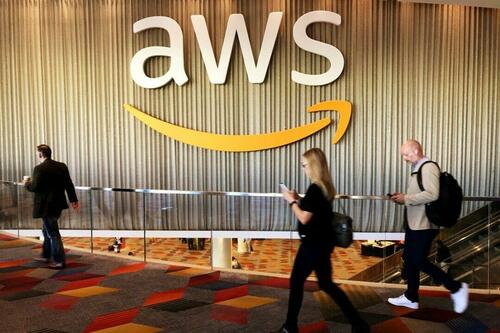What would Europe be without a mountain of regulations aimed at curbing free speech and privacy?

The European Commission (EC) on Monday launched three separate investigations into Amazon and Microsoft to determine whether their cloud computing businesses should be subject to stricter regulation under the EU's Digital Markets Act (DMA).
Two of the probes will examine whether Amazon Web Services (AWS) and Microsoft Azure should be designated as gatekeepers under DMA - even though the companies do not currently meet the law's quantitative thresholds for size, user numbers, or market dominance.
To meet that bar under DMA, companies providing a core platform service must have over 45 million monthly active users and a market cap of more than 75 billion euros (US$87.87 billion). Compaines which breach the rules may face fines of up to 10% of global revenue.
And of course, in Europe - even if a company doesn't meet the threshold to be classified as a gatekeeper - EU regulators can just say you are.
While the DMA is not nakedly about regulating free speech, critics argue that several of its structural mandates could indirectly chill expression online. Requirements for interoperability, alternative ranking systems, and tighter control over “gatekeeper” platforms may unintentionally pressure large services to adopt more uniform, risk-averse moderation policies to avoid regulatory conflict - especially when combined with the EU’s broader Digital Services Act framework.
By forcing platforms to open their systems to third-party services and to redesign core ranking or recommendation functions, the DMA could incentivize over-enforcement, reduced visibility for controversial viewpoints, or a homogenized approach to content governance. In this view, the DMA expands regulatory leverage in ways that, while not explicitly targeting speech, could reshape the online information environment in ways that subtly disfavor dissenting or politically sensitive expression.
Meanwhile, a third probe will look into whether DMA's existing framework is sufficient to address what the European Commission described as anticompetitive practices in Europe's cloud sector.
As the Epoch Times notes further, the legislation has come under fire from the Trump administration, which said in February that the DMA unfairly targeted U.S. tech companies.
In announcing the probes, the EC said cloud computing “must be provided in a fair, open and competitive environment” to ensure innovation and Europe’s “strategic autonomy.”
EU antitrust chief Teresa Ribera said the investigations will examine “whether the DMA’s existing rules need to be updated so Europe can keep pace with fast-evolving practices in the cloud sector.”
She added that cloud computing is critical to AI development and digital competitiveness in Europe.
AWS stated that it believed the EC would ultimately conclude that stricter rules were unnecessary.
“We’re confident that when the European Commission considers the facts, it will recognise what we all see—the cloud computing sector is extremely dynamic, with companies enjoying lots of choice, unprecedented innovation opportunity, and low costs, and that designating cloud providers as gatekeepers isn’t worth the risks of stifling invention or raising costs for European companies,” an AWS spokesperson told The Epoch Times in an emailed statement.
A Microsoft spokesperson, responding to the announcement, said the company was “ready to contribute to the enquiry.”
If the EC ultimately finds that AWS and Azure constitute an “important gateway” between businesses and customers, the services could be added to the list of core platform services for which both companies are already designated as gatekeepers.
Other services by Microsoft and Amazon already on the gatekeepers’ list are LinkedIn, Windows PC OS, Amazon Marketplace, and Amazon Advertising. The Microsoft Azure and AWS designations would trigger new duties, including interoperability requirements and limits on favoring their own products.
The EC said it aims to conclude its investigations within 12 months. If Amazon or Microsoft is designated as a gatekeeper for cloud computing, it will have six months to comply with DMA rules.
The third and broader investigation into whether the DMA adequately governs the cloud market is expected to conclude within 18 months and may result in formal updates to the law.
Reuters contributed to this report.
Loading recommendations...